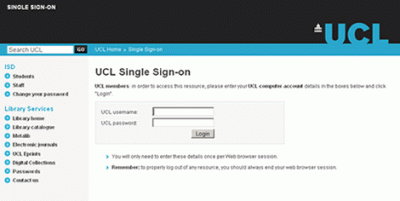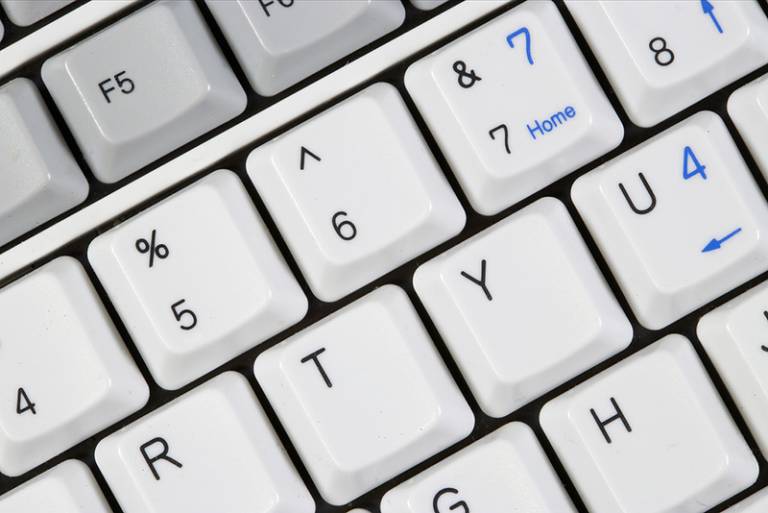UCL Library Services provides access to a huge range of electronic resources (e-resources) to support you in your studies, research and teaching.
Use of the e-resources is subject to copyright law and the licence agreements that UCL signs with the e-resource providers - please make sure you read the terms and conditions of use below and if you have any questions, ask us.
Below you will find general information about what e-resources are available to you and how to find and access them. Use the links on the right for more detailed information about using the different types of e-resources.
- Who can access UCL's e-resources?
Current students and employees of UCL, plus Honorary members of staff, can access UCL's e-resources for academic purposes only.
Access to our electronic resources is determined by the legally binding contracts that we, as a University, sign when entering into an agreement with a publisher or provider. Most of our contracts have educational arrangements, agreed on a national basis with such bodies as Eduserv Chest and JISC.
- Where can UCL's e-resources be accessed from?
Many electronic resources do not require a login from computers on the UCL network. However, if you are using a computer which is not on the UCL network, then when you follow links to electronic resources from the UCL Library Services website, you will often see the UCL e-resource login screen.

This allows the resource to identify you as an authorised UCL user. Simply enter your UCL userid and password in the boxes to access the resource.
Many of our contracts permit limited use by members of UCL Library Services who are not current staff or students of UCL (eg NHS personnel; alumni; retired staff; external members). These people should use the dedicated 'Explore access points' situated within Library buildings: we are not licensed to offer to these groups more extensive access.
- How do I find out which e-resources UCL has access to?
UCL users are encouraged to use Explore, UCL Library Services' search tool for finding journals, books, full-text articles, archive material and much more. Whether you're looking for items on your reading list or information for a project or research, you'll find it in Explore and you get instant access to any full-text we subscribe to.
Explore also provides links to tools for finding individual ejournals and databases. Using this route guarantees that you get access to the full range of resources to which you are entitled as a UCL member. If you are on-site you will not need to log in to resources. If you are off-site, you will be prompted for your UCL userid and password automatically.
- Terms and conditions of use
E-resources are subject to copyright law just like printed materials and their use is also governed by the licence agreements that UCL signs with publishers when arranging electronic access. These agreements set out how the e-resources may be used and who may use them. You are responsible for ensuring that you use e-resources in accordance with these requirements. Please remember that your UCL username and password are for your use only and must never be disclosed to others.
What can I use e-resources for?
You can use e-resources for private study, teaching and / or research, provided that these activities are for non-commercial purposes.
What can I do with e-resources?
As a general rule you may, for your own personal non-commercial use (private study, teaching, research):
- print a single copy of an article or chapter;
- save a copy of an article or chapter;
- print single copies of or save limited extracts from a database.
What can I NOT do with e-resources?
You MUST NOT:
- use the e-resources for any commercial purpose;
- make multiple print or electronic copies of a single article or chapter;
- make print or permanent electronic copies of more than one article from one issue of a journal or one chapter from an e-book
- engage in systematic or excessive downloading, either manually or through the use of technical means such as robots;
- provide print or electronic copies of material to anyone;
- post any content on the Internet or other electronic network;
- remove or alter publisher copyright notices, authors' names, journal / book / chapter / article titles or any other means of identification;
- alter or adapt material from the e-resources.

 Close
Close

